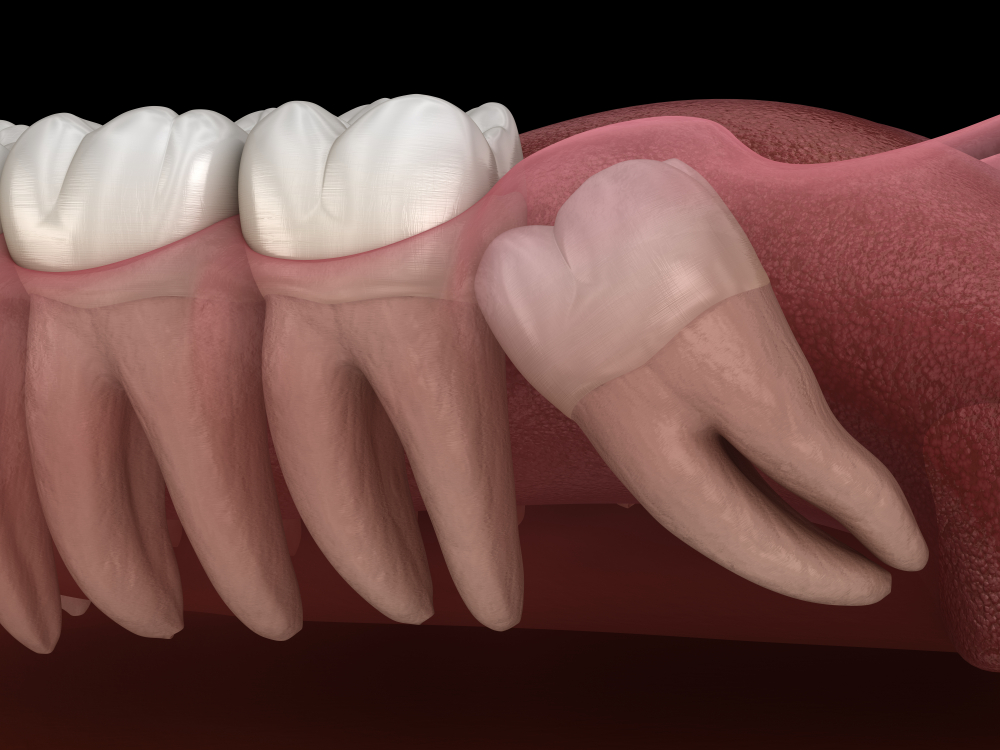
Regarding oral health, one of the most common topics of discussion is wisdom teeth. These are the third and final set of molars that most people get in their late teens or early twenties. Sometimes, these teeth can be a valuable asset to the mouth when healthy and properly aligned, but they are often misaligned and require removal to avoid potential health problems.
Why is Wisdom Teeth Removal Necessary?
While not all wisdom teeth need to be removed, problems can develop that necessitate their removal. Often, the mouth is too crowded for wisdom teeth to grow properly. This overcrowding can cause wisdom teeth to become impacted, leading to a host of painful and potentially dangerous oral health complications.
Pain is perhaps the most apparent sign that your wisdom teeth might be causing problems. However, other symptoms might suggest the necessity for wisdom teeth removal. These symptoms include red or swollen gums, tender or bleeding gums, jaw pain, swelling around the jaw, bad breath, difficulty opening your mouth, and an unpleasant taste in your mouth.
If you're experiencing these symptoms, it's important to visit your dentist. They can evaluate your mouth and teeth and can advise you on whether your wisdom teeth should be removed. Even if your wisdom teeth aren't causing you discomfort now, they could cause problems down the line. Routine checkups and X-rays can help your dentist track the progress and growth of your wisdom teeth.
Common Questions About Wisdom Teeth Removal
Just like any other surgical procedure, wisdom teeth removal often raises several questions.
1. Is wisdom teeth extraction painful? The answer largely depends on the complexity of the extraction. However, with modern anesthetics and surgical techniques, pain is usually minimal during the procedure.
2. How long is the recovery period after the extraction? Typically, it takes a few days to a week to recover from wisdom teeth removal. The length of recovery depends on how badly the wisdom teeth were impacted and how they were erupting.
3. What should I eat after wisdom teeth removal? After your wisdom teeth are removed, you should stick to soft foods and liquids, and gradually reintroduce harder foods as your mouth heals. It's also important to stay hydrated by drinking plenty of water, but avoid using a straw as this can dislodge the blood clot that forms after extraction, leading to a painful condition known as dry socket.
The Wisdom Teeth Removal Process
Before the wisdom teeth removal process, your dentist or oral surgeon will explain the procedure and answer any questions you may have. They'll use a local anesthetic to numb the area around the tooth or use a strong general anesthetic if multiple teeth are removed at once.
During the extraction process, your dentist or oral surgeon will make an incision in your gums and remove any bone that is blocking access to the tooth root. They will then divide the tooth into sections to make it easier to remove. After the tooth is removed, you may need stitches. Some stitches dissolve over time, and some have to be removed after a few days.
After the procedure, you'll be taken to a recovery room if you have a general anesthetic. Most individuals can go home on the same day as the extraction. Your doctor will give you post-operative instructions for caring for your mouth.
Post-Operative Care
Post-operative care is crucial after wisdom teeth removal. Following your dentist's instructions will help speed up recovery and prevent complications. It's normal to have some discomfort and swelling after the procedure. Applying an ice pack to the area for 15 minutes at a time can help reduce this.
Your dentist might also prescribe painkillers to manage any post-operative pain. It's important to take these as directed. After the surgery, you should also avoid smoking and strenuous physical activity for at least a week, as these can slow down the healing process.
To keep your mouth clean after surgery, you should rinse your mouth with warm salt water every 2 hours and after meals for a week. However, don't rinse your mouth within the first 24 hours of surgery. It's also crucial to continue your regular oral hygiene routine, but be gentle around the surgical site.
Ensuring Your Oral Health
Early detection of potential problems with your wisdom teeth can save you from unnecessary pain and complications. Your dentist is the best resource for any questions or concerns you may have about wisdom teeth removal. It's their job to ensure your oral health is the best it can be.
To learn more about wisdom teeth removal, visit John K. See, DDS in our Camarillo, California office—call (805) 920-8600 to schedule an appointment today.










